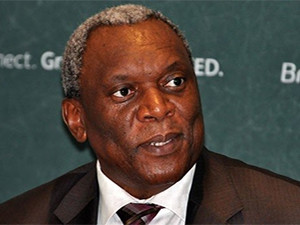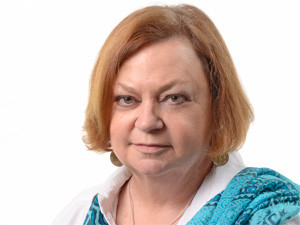
One year later, phase one of government's broadband rollout efforts under the SA Connect initiative is yet to be implemented.
During last year's Department of Telecommunications and Postal Services (DTPS) budget vote speech, minister Siyabonga Cwele said his department would begin phase one in eight rural districts around the country.
However, delivering his budget vote yesterday, Cwele told Parliament: "Phase one of government broadband rollout in eight districts is almost ready for implementation after long planning, consultations and agreeing on coordinating structures with the eight municipalities and relevant provinces."
The objective of the first phase is to connect all schools, health facilities, government offices, Thusong Centres and post offices in eight rural district municipalities to fast, secure and always-available broadband services.
In this financial year, R316 million has been allocated to connect 2 700 government facilities to scalable broadband infrastructure, Cwele said in his budget vote speech.
According to Marian Shinn, Democratic Alliance MP and shadow minister for telecommunications and postal services, it's no surprise phase one has yet to be implemented.
Since the spotlight was turned on president Jacob Zuma's 2015 announcement that Telkom would be the "lead agency" in the pilot project, there has been much scrambling behind the scenes to develop a process to try to legitimise the announcement, Shinn told ITWeb.

"I am told Telkom engineers have spent much of the past year scoping the requirements for phase one, although the minister's replies to repeated parliamentary questions on Telkom's involvement have not provided clarity on the legality of its involvement."
Protracted process
SA Connect, first announced in 2013, aims to deliver 100% broadband connectivity for all schools, health and government facilities by 2020.
The objective is to deliver widespread broadband access to 90% of the country's population by 2020, and 100% by 2030.
While the private sector continues to push with increased investment in fibre rollouts across metro areas, the SA Connect policy was established to fill the gaps so that areas that fall outside the metros don't lag behind.
The government's ambitious project has, however, been plagued by a number of issues, including delays in the implementation as well as the selection of a lead agency.
Speaking at September's Southern Africa Telecommunication Networks and Applications Conference, Cwele said the appointment of a lead implementation agent would happen within days.
Addressing the National Assembly late last year, Zuma confirmed fixed-line operator Telkom will take the lead in the deployment of broadband infrastructure.
The DTPS, however, refuted Zuma's comments, stating Telkom is only a "designated" and not "appointed" lead agent.
According to Cwele, Telkom's designation is based on the investment it made in rolling out an extensive fibre network, which accounts for 86% of the existing 170 000km of national fibre.
"The department is working with the State Information Technology Agency to finalise the process of appointing the service provider in line with the Public Finance Management Act," Cwele told Parliament yesterday.
George Kalebaila, senior research manager at IDC, says any delay in the project disadvantages government and the public sector, which are going to be the biggest beneficiaries.
"Municipalities, schools (especially in disadvantaged communities) and other public institutions would all benefit from good broadband that SA Connect is supposed to provide. Therefore, any delays in the project actually continue to disadvantage these institutions from accessing better digital services."
Unfortunately, the continued delays cast doubt on government realising its ambitious targets, he says.
Shinn shared strong words in terms of what the DTPS has to do to ensure the success of the implementation. It's time for Cwele to stop this patronising, vague talk, and trying to manipulate which entities and companies will do the work, she says.
"He must realise the SA Connect vision cannot be delivered under the current funding model. JSE-listed Telkom ? as the lead agency ? cannot manage the work at bargain basement prices. He must with honest and open intentions meet with all SA's ICT players who are keen to share in the SA Connect vision to work out a win-win private/public partnership vehicle that makes business sense."
Number-crunching
With a budget of R2.4 billion, as presented by Cwele yesterday, the DTPS says it will require R67 billion for broadband infrastructure in the next three years.
As part of this year's budget speech, finance minister Pravin Gordhan announced a R500 million cash injection, boosting the budget for the initiative to R1.6 billion over the medium-term expenditure framework period.
This means the budget jumped from last year's R1.1 billion, to R1.6 billion over the next three years.
However, as noted by Cwele, the funding is insufficient and the department is working with National Treasury on a funding model.
Cwele wants charitable private sector funding, says Shinn. "This will not be forthcoming unless government takes a more inclusive approach with the sector through all phases of the project and accedes to its view that private sector partners have to make profits from their involvement. This necessary conversation with the private sector has not even started ? unless the government has already picked its partners and the deals are being done in secret."
Industry analysts previously stated the successful implementation of such an ambitious project will require the formation of private-public partnerships.
Kalebaila explains: "The only way to accelerate SA Connect is to open it up for private-public partnership. The project should be opened up to many private players to accelerate rollout as we have witnessed in urban areas. The level of competition we're witnessing in the fibre land grab going on at the moment can only be good for the industry and end-users."
But wait
Professor Hlengiwe Mkhize, deputy minister in the DTPS, has defended her department's need for R67 billion.
"Based on the budget vote, I realise a lot more work needs to be done in helping everybody in SA to understand what we mean when we say for broadband rollout we need R67 billion," she told ITWeb.
"It doesn't mean that we are not moving; it simply means for us to avoid any possible stoppages, we have to utilise investors nationally and abroad because it cannot be government budgets alone.
"SA Connect is a big national agenda - it can only be done effectively if we partner and bring all the resources on the table."
According to Mkhize, partnerships with the private sector are the only way to ensure effective rollout.
"The SA Connect policy is based on clear policies that include government, private sector, social entrepreneurs and universities. It's a big national agenda ? we need to clarify this so that partners are at ease and spend their budgets and come forward with their plans about where they see themselves actively involved. Our focus is that people should show a bias towards boosting rural communities."
Share